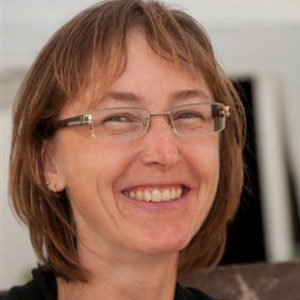Emma Young
- Please introduce yourself.
I’m Dr Emma Young and I work as an ocean and biophysical modeller within the Polar Oceans team at the British Antarctic Survey.
- Tell us about your professional and academic career before becoming part of the BIOPOLE Community.
During my physics degree, I realised that although topics like quantum mechanics were fascinating, what really interested me were the more applied subjects, such as medical physics and meteorology. I went on to study atmospheric sciences and dabbled with the idea of hurricane research for a while, before I discovered the delights of ocean modelling during my dissertation, which I continued for my PhD. It was then that I discovered a love for interdisciplinary research, using ocean models to understand how oceanographic variability influences the transport and recruitment of marine organisms. After completing my PhD, I continued working on interdisciplinary modelling for 5 years at the Centre for Environment, Fisheries and Aquaculture Science (Cefas), where I also discovered that observational oceanography is definitely not for me – I’m not a good sailor. I then spent a few years at the Proudman Oceanography Laboratory (now NOC) before moving to the British Antarctic Survey where I continue to enjoy using ocean modelling for interdisciplinary research.
- What do you do within BIOPOLE?
Within BIOPOLE, my work is contributing to WP1, 2 and 3, and I also co-lead the Modelling-Observations Working Group, which aims to encourage and enhance links between BIOPOLE modelling work and observational campaigns. As part of WP1, I’m adding tracers to a South Georgia regional ocean model to investigate how climate variability impacts the transport of nutrients from land and marine sources, and their export to the open ocean. My modelling work for WP2 and 3 focusses on the NW Weddell Sea region, using a combination of regional ocean modelling and particle tracking to investigate the transport pathways and benthic interactions of diapausing copepods. Diapausing copepods are important for carbon export to deeper waters but there’s a lot of uncertainty around the timing and depth of diapause, and the role of fine-scale ocean flows, which are not well represented in global models. The modelling I’m doing aims to address these uncertainties.
- What have you enjoyed about BIOPOLE so far?
One of the things I’ve really enjoyed about BIOPOLE is the chance to meet and work with scientists from a wide range of disciplines. It’s great to hear about the diverse research being done by the BIOPOLE community across different institutes and I’ve enjoyed contributing to the project in unexpected ways, such as providing oceanographic information to support cruise planning.
- Tell us about a skill or trait unique to you that you would like to share?
I love playing the piano and violin in my spare time. If I’ve had a particularly frustrating day failing to debug model code, attacking a Beethoven piano sonata provides instant stress relief (for me, if not for the rest of the household!).

